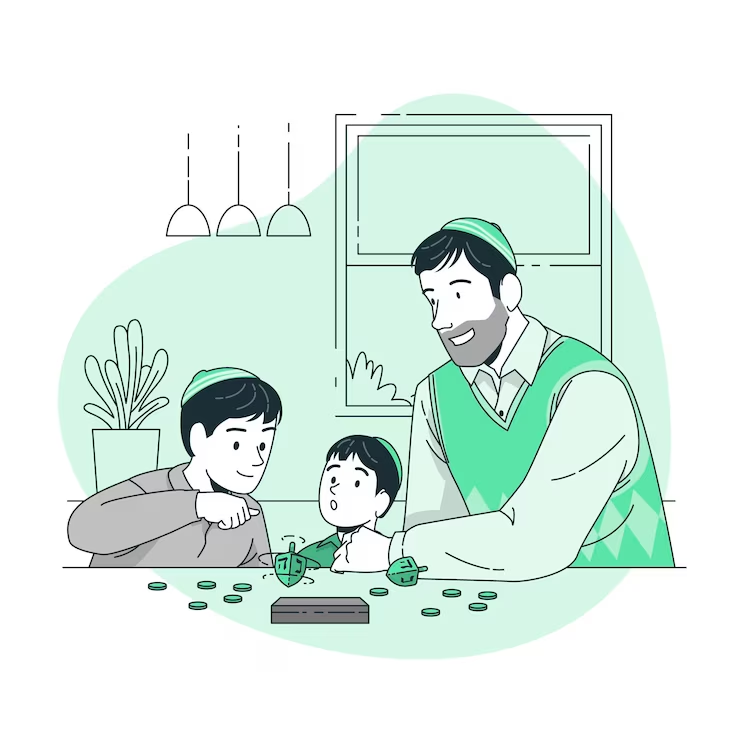Child Behavioral Psychology and the Importance of Boundaries

People illustrations by Storyset
The hardest issue when it comes to staying consistent appears to be staying consistent with discipline as it relates to children, considering that is all the web search results on Google seem to be giving birth to after my search.
But why is this the case? I don’t know. Have you tried living with children? For the last three days, I have been with my nephews, and I have to tell you, it is an uneasy task, to say the least.
As someone who has written so extensively on the use of corporal punishment (the least representative of the environment one is in) as a means for correction in children, I have been a strong advocate against it in many instances while at here.
A lot of child behavioral psychology is designed to know where the boundaries are, and if possible, push past them in a healthy way. The one-year-old who is just learning how to walk wishes to play in an area they are allowed to, but they have to be allowed, and there have to be boundaries.
A study done in 2014 illustrated this perfectly. Children aged 3 to 5 years were observed for the behavior they exhibited in two different playgrounds for several months. One playground had a fence around it, and the other had no physical boundaries. What the researchers found was that the children in the fenced playground were more active and played in all the play areas available more than those who were not in a fenced area.
I believe in boundaries very much, and whether you believe in them or not, children will test the limits...unless they are none...then they will grow up feeling afraid.
In this post, we will be discussing building consistency when it comes to handling children. The psychology around this topic is clear: consistent parents give a predictable and stable environment for the child to grow in, and this is what makes the boundary clear.
Expectations

People illustrations by Storyset
Children who know that there are consequences and rules to follow and know what will happen if they break them are the ones who learn what is expected of them. Having these clear expectations will reduce the chances that they go out of the psychological bounds in their behavior.
Children who have duties and face consequences when they do not follow through with these duties tend to have a sense of structure that surrounds them. Many people think that this will cause anxiety or leave the children feeling depressed, but on the contrary, this is the opposite of what takes place.
Accountability

People illustrations by Storyset
This is such an important area in a child’s life that needs to be reinforced. It is so common to find adults who do not realize that there are consequences for their actions, or better yet, hope that they can wish them away.
In a way, accountability means the good outcomes of my actions will also be rewarded with results that represent the actions that were made.
This all falls back to the fact that there must be consequences for certain behaviors the child portrays, no matter how small they seem.
Jordan Peterson always reminds people in his conversations that systems that are allowed to go mildly out of control go remarkably out of control. The more children learn to dissociate actions from consequences, the more they will continue to indulge in unbecoming behavior compounded over time.
Follow-Through

People illustrations by Storyset
Children mirror the behavior of the adults they have around them, and most times, they will also take up the behavior the adults have towards them. When threats are made to the child that are empty and do not amount to anything, they recognize the pattern easily.
The demand for the action should be placed with the consequences that will follow if they are not met, especially when it is an action that the child could easily do but is likely to play with.
"If you do not wash the dishes after you are done eating, no more TV for a week,” you have to mean that and carry out the punishment, unless they have been of particularly good behavior.
By doing this, you also teach yourself to follow through on your own words to the child and to people in general.
*What are your thoughts on all this? *
You can send me a message on WhatsApp at +2348134530293, and we can have a conversation, or you can speak with a licensed therapist.
Conlusion
In conclusion, building consistency when it comes to handling children is crucial for their growth and development. Children need clear expectations and boundaries, along with accountability and consequences for their actions. It is essential to follow through on our words and actions and not make empty threats, as children quickly recognize patterns and may develop unhealthy behaviors over time. Providing a stable and predictable environment helps children feel secure and thrive.
It is vital to take time to understand child behavioral psychology and the importance of setting healthy boundaries. As adults, we can positively impact the children around us by modeling the behavior we expect and being consistent in our approach.
Remember, if you need further assistance or guidance, you can speak with a licensed therapist or reach out to me via WhatsApp.

It is really a great job taking care of kids, I even feel it should be a full-time job (lol), I mean, you simply tell them one thing today, and the following day, they seem to have forgotten everything and you simply need to begin re-training again.
It takes a lot of patience to be a good parent and good parents should be put on the payroll by the breadwinner or shown some form of appreciation because it is not easy.
Thanks for your contribution to the STEMsocial community. Feel free to join us on discord to get to know the rest of us!
Please consider delegating to the @stemsocial account (85% of the curation rewards are returned).
You may also include @stemsocial as a beneficiary of the rewards of this post to get a stronger support.